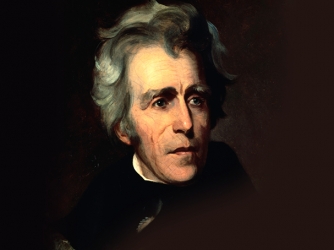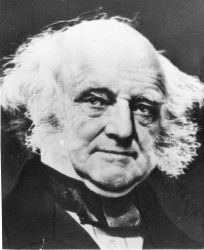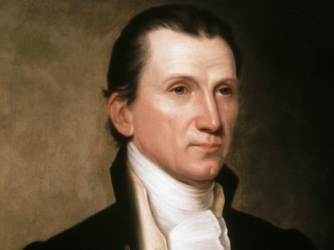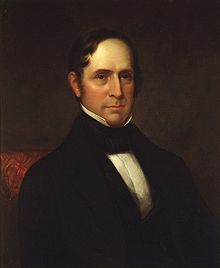It is a human thing that we do, to imagine that the times and circumstances we live in are fully unique and unprecedented. We look at the chaos of election 2016 and think that nothing has ever been so crazy.
We like to think these things…but we’re wrong if we do.
No, if you REALLY want crazy election seasons, the 19th Century is your huckleberry. Revivalist era, antebellum era, Reconstruction, post-Reconstruction, take your pick, and you’ll find an absolutely bonkers election season.
(Marty Van Buren, winner of the election of 1836–spoilers!–and the guy this story really isn’t actually about.)
One that I want to focus on that seems to stand out from the others in many ways is the election of 1836. This was one for the books, and there are characters in it about whom a very good movie could be made. This was the election to succeed a very popular sitting president in Andrew Jackson. The guy who won the election, Martin Van Buren, is maybe the least-interesting part of the story.
But…I’m getting ahead of myself. Let’s set some background up.
Let’s go back to 1824’s contentious election. It’s the end of an era back then, an era when Monroe was president and folks called it the “Era of Good Feelings”. In reality, it was pretty damned scary for American democracy. America was a one-party country, the Democratic Republicans. America was also kind of a one-state party at that point. We like to think of these early days of our country as some idealized birthplace of democracy, but in fact America pretty much had established a monarchy here. The Federalist party of John Adams crashed hard after 1800. Their tariffs and interstate trade fees were incredibly unpopular in the south, so much so that it was a foregone conclusion that a Virginian from the Democratic Republican party would win the Presidency. And of course, back then there were no primaries. The nominee was chosen. You may do the algebraic formula in your head that the sole party choosing its own nominee and that nominee being guaranteed the presidency is not really what you’d call anything like a choice of the voters.

(Two centuries before W’s boondoggle in Iraq, the Father of the Constitution, James Madison, ginned up his own stupid war for America to fight to a stalemate.)
(Jimmy Monroe, in charge of the War Department in 1812. Apparently having your capital conquered by a foreign invader was no impediment to landslide presidential victories!)
And so the office passed in succession from Jefferson to Madison to Monroe. It is a testament to just how far the country had fallen into single party doldrums that after the spectacular disaster of the War of 1812, the party who ginned it all up and the Secretary of War who prosecuted it got elected by a landslide in 1816…and then Monroe ran unopposed in 1820. Democracy! Yeah!
So yeah. I digress, badly. We were going to set up 1824, in preparation for 1836.
There’s one party, the Democratic Republicans. You get that nomination, you’re the President. Well…the way this had worked for Madison and Monroe is that they were prominent cabinet members in the prior administration, and were thus anointed and crowned. The person most likely to get that nod from Monroe was his veep, a guy named Daniel Tompkins. The reason you’ve never read about Daniel Tompkins’ presidency is that Mr. Tompkins was the Dick Cheney of his day, pretty much hated by everyone he came into contact with. Also, he was dying and bed-ridden, so there was that too.
1824 might be worth it’s own post, but to sum it up, there were four candidates running from the same party, and the guy who won didn’t have the plurality of the Electoral or popular vote. That was John Quincy Adams who won when the ellection went to the House. The guy who lost–but had the most popular and electoral votes–was Andrew Jackson, sort of the Donald Trump of his time.
When Jackson did win the presidency in 1828, he took the executive position and assumed new powers to it. This put him in constant conflict with the Supreme Court and Congress. It also created the powerful modern precedent of the US Presidency as we know it today. Jackson’s power consolidation was so complete, though, that it got him the title of “King Andrew the First” from his critics.

(King Andrew the First…or Donald Trump 1.0)
Those same critics realized that America’s one-party system was a disaster, and so the genteel mercantile folks in the south and the old Federalists and even folks building the new western frontier (basically what we’d call the Rust Belt today, plus Missouri and Wisconsin) formed the Whig Party. Now America was back to a two-party system!
Problem is, Jackson was popular as a president, and the Whigs didn’t have their stuff together in time to make the ballot in 1832. But they got it together for 1836, when Jackson had completed two terms and set minds at ease by announcing he’d not run again for a third.
So here we are…FINALLY ready to talk about the hilarious chaos of the 1836 election!







